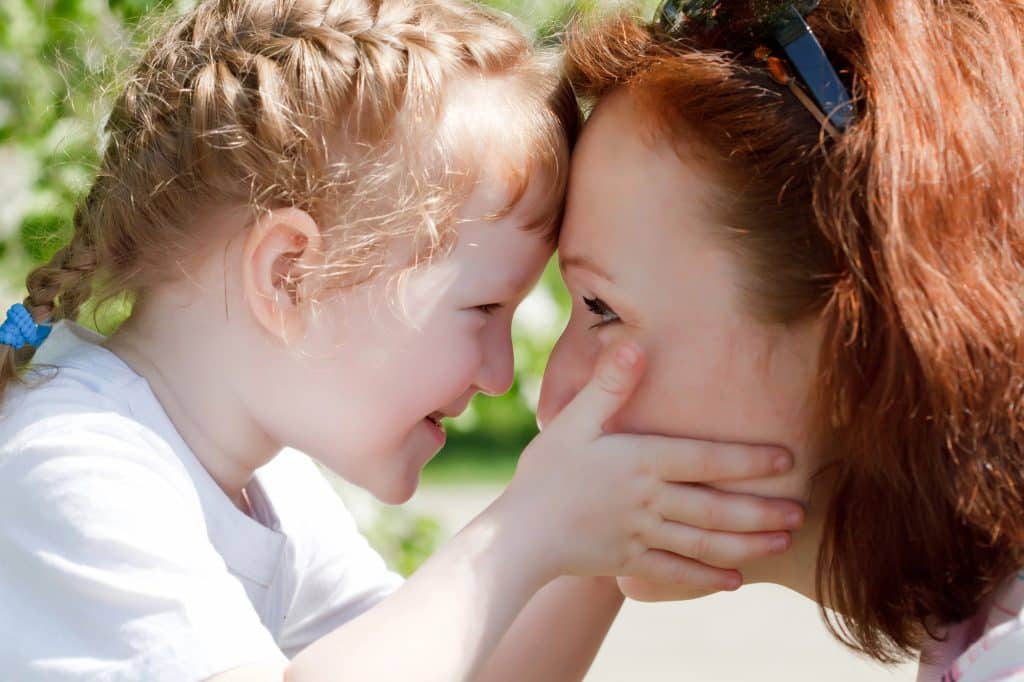Table of Contents
Gentle parenting, a child-rearing approach based on empathy and respect, isn’t inherently bad for children’s development. In fact, research suggests that responsive parenting styles can foster secure attachments and emotional intelligence in children. Gentle parenting, when implemented appropriately, can help children develop self-regulation skills and healthy relationships with their caregivers.
Critics argue that gentle parenting might lack sufficient boundaries or discipline, potentially leading to entitled behaviour. However, this criticism often stems from misunderstanding the approach. Gentle parenting does include boundaries and consequences, but delivers them with empathy rather than punitive measures.
The effectiveness of gentle parenting varies based on individual family dynamics, cultural contexts and the child’s temperament. Parents may find that combining elements of gentle parenting with other evidence-based approaches works best for their unique family situation, avoiding rigid adherence to any single parenting philosophy.
What Is Gentle Parenting?
Gentle parenting is a child-rearing philosophy that focuses on building strong parent-child relationships through empathy, respect, and understanding. It rejects authoritarian approaches in favour of methods that honour children’s emotions while still maintaining appropriate boundaries.
Core Principles of Gentle Parenting
Gentle parenting stands on four main pillars: empathy, respect, understanding and boundaries. Parents aim to see situations from their child’s perspective rather than imposing adult expectations without consideration.
Communication plays a central role, with parents explaining rather than commanding. A parent might say, “I understand you’re angry, but we don’t hit” instead of simply “Stop hitting!”
Setting limits remains important, but these are explained and enforced with kindness. Discipline focuses on teaching rather than punishment, helping children learn from mistakes.
Parents practise self-regulation to model the behaviour they wish to see. This approach recognises that children learn emotional regulation by watching adults handle their own feelings.
Comparison with Positive Parenting
While often discussed interchangeably, gentle and positive parenting have subtle differences. Both reject punitive measures like spanking or harsh verbal discipline, but they diverge in their focus.
Positive parenting emphasises encouragement and positive reinforcement, using praise and rewards to shape behaviour. Gentle parenting places less emphasis on external motivators and more on intrinsic motivation.
The approach to boundaries also differs slightly. Positive parenting might use structured systems like reward charts, while gentle parenting tends to rely more on conversation and natural consequences.
Both methods aim to foster secure parent-child relationships and help children develop emotional intelligence. Research suggests both approaches can lead to better outcomes in children’s social development and mental health.
Common Misconceptions About Gentle Parenting
The biggest myth is that gentle parenting means permissive parenting. This misunderstanding leads to criticism that children raised this way lack discipline. In reality, boundaries remain firm, though enforced with kindness.
Some believe gentle parenting requires perfect emotional control from parents. This perfectionism can discourage parents from trying the approach. The truth is that gentle parenting acknowledges parents are human and make mistakes.
Critics worry children won’t learn to handle “real world” harshness. Research suggests the opposite—children raised with gentle techniques often develop stronger emotional resilience and social skills.
The perception that gentle parenting is “new age” ignores its foundation in child development research. Many principles align with attachment theory and developmental psychology findings dating back decades.
Discipline and Behaviour: Addressing Concerns
Gentle parenting offers specific approaches to discipline that focus on connection while maintaining appropriate boundaries. These methods aim to shape behaviour positively without sacrificing either the parent-child relationship or necessary behavioural expectations.
Discipline Through Connection
Gentle parenting prioritises connection as the foundation for effective discipline. Parents who practise this approach respond to misbehaviour by first acknowledging children’s feelings before addressing the problematic actions.
Instead of punishment, gentle parenting uses natural consequences and teaching moments. When a child makes a mess, they help clean it up. This approach helps children understand the impact of their choices rather than simply fearing punishment.
Research shows that children disciplined through connection often develop stronger emotional regulation skills. They learn to make good choices based on understanding rather than fear of getting into trouble.
Gentle discipline doesn’t mean permissiveness. It requires consistency and clear communication about expectations, just with less harshness and more empathy in the delivery.
Managing Boundaries in Gentle Parenting
Contrary to common criticism, gentle parenting strongly emphasises boundaries. The difference lies in how these boundaries are communicated and enforced.
Gentle parents set clear limits while respecting the child’s emotions. For example, a parent might say, “I understand you’re angry, but hitting isn’t allowed. Let’s find another way to express that feeling.”
Consistency remains vital in gentle parenting. Children thrive when rules are predictable and applied fairly, regardless of parenting style.
Setting boundaries in gentle parenting involves explaining the “why” behind rules. This approach helps children develop their own internal compass rather than simply following directions out of fear.
When children test boundaries, gentle parents remain firm while acknowledging feelings. This balance teaches that emotions are valid while certain behaviours remain unacceptable.
Impact on Child Behaviour
Studies show children raised with gentle parenting typically display better long-term behavioural outcomes. They often demonstrate stronger emotional intelligence and better problem-solving skills.
Children disciplined gently tend to develop more robust internal motivation. Rather than behaving well to avoid punishment, they make positive choices based on understanding consequences and empathy.
Gentle parenting supports healthy brain development. When children feel safe even during discipline, their brains remain in learning mode rather than fight-or-flight response.
Critics worry about children becoming entitled, but research suggests the opposite. Children raised with respectful discipline often show more consideration for others as they’ve experienced respect themselves.
The parent-child relationship typically remains stronger through challenging behavioural phases when gentle discipline methods are used. This connection gives parents more influence as children grow older and face increasingly complex decisions.
Potential Drawbacks of Gentle Parenting
While gentle parenting prioritises emotional connection and respectful guidance, it faces valid criticism regarding its practical application in everyday family life. Critics question its effectiveness in certain situations and raise concerns about its impact on both children and parents.
Limits of Non-Punitive Approaches
Non-punitive discipline strategies may sometimes fall short when immediate behavioural correction is necessary. Children testing boundaries might interpret gentle responses as a lack of firm limits, potentially leading to confusion about acceptable behaviour.
In high-risk situations requiring swift compliance—like running into traffic—gentle approaches may not produce the immediate response needed to keep children safe. Some children, particularly those with certain temperaments or developmental needs, might require more structured guidance than gentle parenting typically offers.
Traditional disciplinary methods often provide clearer cause-and-effect lessons that some children better understand. Without clear consequences, children might struggle to connect their actions with outcomes.
Parents following gentle parenting principles sometimes report difficulty maintaining consistency, especially during stressful moments when quick resolution is needed.
Criticisms from Psychologists and Educators
Some child development experts express concern that gentle parenting might create unrealistic expectations for parents. Dr Sarah Thompson, child psychologist, notes that “placing too much emphasis on perfect emotional regulation from parents creates impossible standards that few can maintain consistently.”
Critics argue that gentle parenting’s focus on validating all emotions might inadequately prepare children for environments like schools or workplaces where emotional expression has practical limits. This potential mismatch between home and external expectations could create adjustment difficulties.
Educational professionals sometimes point out that gentle parenting might inadvertently undermine authority figures outside the home. Children accustomed to extensive explanation and negotiation may struggle with teachers who use more direct instructional approaches.
Some research suggests that certain children benefit from clearer boundaries and more structured approaches than gentle parenting typically emphasises.
Parental Stress and Burnout
The constant emotional availability required by gentle parenting can drain parents’ mental resources. Unlike more directive parenting styles, gentle approaches demand continuous mindfulness and self-regulation.
Parents often report feeling guilty when they cannot maintain perfect calm during challenging interactions. This perfectionism can increase anxiety and reduce parenting confidence.
The intensive nature of gentle parenting can be particularly challenging for parents facing additional stressors like financial hardship, single parenting, or caring for children with high needs. These parents may lack the time and emotional bandwidth that gentle parenting demands.
Social media portrayals of gentle parenting often present idealised versions that bear little resemblance to real-life implementation, creating unrealistic expectations. This gap between expectation and reality frequently leads to feelings of inadequacy among well-intentioned parents.
While gentle parenting offers a compassionate and respectful approach to child-rearing, parents should carefully consider its principles in the context of their unique family dynamics, adapting and integrating strategies that best support their child’s developmental needs and the overall well-being of the family unit.

